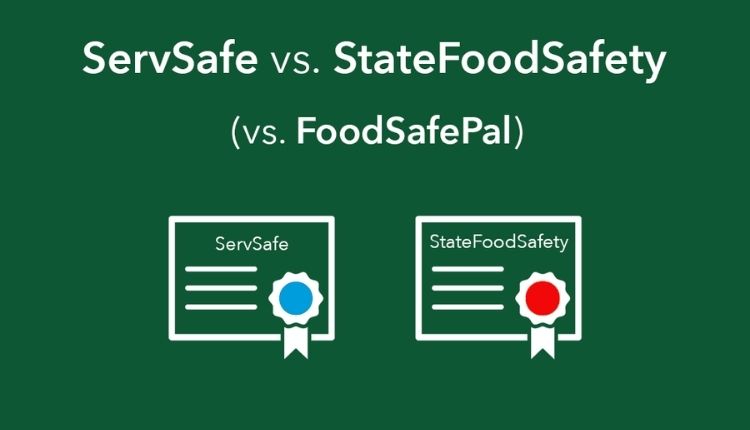The ServeSafe certification proved to be one of the leading programs for the education of individuals on food safety procedures, compliance with regulations, and responsible treatment. This article examines the importance of ServSafe, the benefits it provides, and how it forms a professional environment for food employees.
Understanding of a ServeSafe certification
ServeSafe is a comprehensive program of training and certification of food developed by the National Restaurant Association of Restaurants. It is designed to educate workers, managers, and food service operators on the basic principles of safe food processing, hygiene, and compliance with health regulations. ServSafe provides structured courses that cover food transmission, proper food storage, personal hygiene, and preventive measures to ensure consumer safety.
The program is widely recognized in the United States and at the international level. Its certification serves as a scale for knowledge of food safety and helps businesses in accordance with local and federal health regulations while reducing the risk of foodborne illness. The program offers multiple levels of certification, from food service to manager and from eating to various roles in the food industry.
Importance of ServSafe in the field of food safety
Foodborne diseases remain a significant problem in public health, with millions of cases reported annually. ServeSafe plays a crucial role in alleviating these risks by equipping professionals in the food industry with knowledge and skills for safe handling of food. By understanding the causes of contamination, correct cooking temperatures, and storage techniques, certified individuals can significantly reduce the likelihood of foodborne diseases.
In addition to public health, the SERVSAFE certification increases credibility. Restaurants and equipment for food employing certified employees show a commitment to quality and build confidence among customers. Health Inspection Authority often prefers facilities with ServSafe-certified staff that are positively reflected in compliance and operating standards.
ServeSafe training components
ServeSafe training covers a wide range of topics necessary to maintain food safety. The curriculum involves understanding the pathogens of foodborne transmission, recognising symptoms of contamination, and implementing preventive measures. Courses emphasise personal hygiene, including proper hand washing, using gloves, and safe handling to avoid cross-contamination.
In addition, ServeSafe provides instructions for cleaning and disinfecting kitchen equipment, managing food storage, and monitoring temperature control. The programme also concerns allergen management and employee education on allergen identification and cross-contact prevention. This comprehensive approach ensures that employees are well prepared to maintain high safety standards in various food services.
Benefits for food professionals
It offers a number of advantages to individuals working in the food industry. Certified experts gain credibility and increased job opportunities because employers prefer candidates with recognised food safety training. Certification increases knowledge and brings confidence in safely and effectively handling food.
ServeSafe also contributes to career development. Managers and supervisors with certification are better equipped to supervise operations and employee training and ensure compliance. Employees benefit from improving workplace safety, reducing incidents of contamination, and strengthening professional legacies. In many cases, certification is a requirement for employment, especially for managerial positions, which makes it an essential credential for career growth.
Implementation in food service facilities
The food service company integrates the ServeSafe certification into its operating framework to maintain high standards of hygiene and safety. Employers often require employees to complete the certification before taking over the duties in the kitchen or operating. Regular training and repetition courses are recommended so that the knowledge is maintained and in accordance with the developing health regulations.
By inserting the Pravsafe practices into everyday operations, the equipment can prevent food transmission, minimise violations of the Health Code, and create a safer environment for employees and customers. The supports the culture of responsibility and professionalism, where employees understand the critical role they play in maintaining food safety.
Impact on public health and customer confidence
ServeSafe certification has a direct impact on public health. Trained experts are better equipped to recognize risks, prevent contamination, and respond effectively to potential risks. This proactive approach reduces the incidence of diseases caused by food and protects the consumer from damage.
Customer trust is another important result. Readers are more likely to trust restaurants and providers of food services who show a commitment to food safety. Visible certification and compliance with proven procedures assure customers that their comfort is a priority and increase brand loyalty and overall satisfaction.
ServSafe test and renewal
The ServeSafe certification process involves completing the specified training course followed by a test. The test evaluates the knowledge of the principles of food safety, regulatory requirements, and practical applications in the food environment. Completing the certification on the exam, valid for a specific period, usually five years, depending on the level.
Renewal ensures that certified experts remain current with current procedures and standards. Continued education is recommended to maintain competencies because food safety instructions develop over time. Many devices require periodic recertification to ensure that employees are constantly adhering to proven procedures and regulatory requirements.
Conclusion
ServeSafe Certification is a vital tool to promote food and public health safety. By providing comprehensive training and recognized login data, it encourages food professionals to treat food responsibly, prevent contamination, and maintain compliance. Employees and facilities benefit from increased credibility, increased security, and improved customer confidence. Since the food service industry continues to grow, the servSafe remains an essential part of professional development and operating excellence.
Frequently asked questions (FAQ)
What is the ServSafe certification?
ServeSafe certification is a recognized program of food safety developed by the National Restaurant Association of Restaurants. It raises food service staff in the field of safe food processing, hygiene, and compliance with health regulations.
Who needs ServSafe certification?
Foodservice employees, managers, and operators typically require ServSafe certification. It is especially important for those in positions responsible for food preparation, handling, or supervision.
How long is the ServSafe certification valid?
Certification validity depends on the level, but typically, ServeSafe certification lasts for five years. Renewal and continuing education are recommended to stay current with safety standards.





